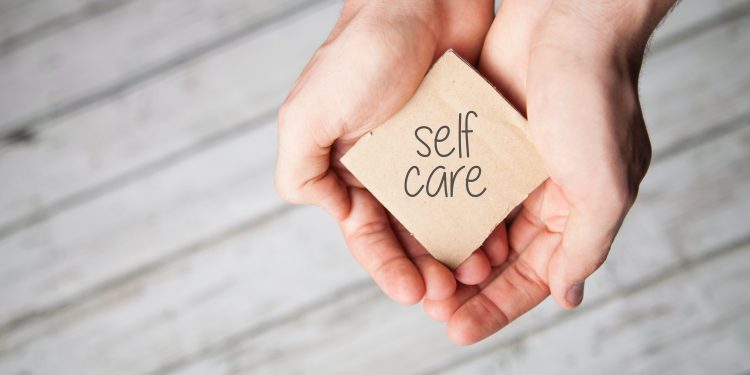by Sue Wilson, MA, ATC/L, PES, CHHC
Self-care is critically important as a caregiver, a patient, friend or family member. Often, we get so wrapped up in the medical process and rehabilitation that we forget the cornerstones of health.
Ask yourself, “Do I take care of myself?” Then ask, “In what ways do I take care of myself?” That’s a bit trickier to answer.
Self-care is any activity that we do deliberately to take care of our mental, emotional, and physical health. In theory, it’s a very simple concept but a hard one to implement.
Self-care can be a bit hard because sometimes we feel like we don’t deserve it, or it is viewed as a selfish act. Self-care is anything but selfish. It is a routine that takes place to ensure you are creating the best possible version of yourself for you and others.
Self-care should also refresh and renew you, never drain and exhaust you. Below are a few helpful hints on how to start your self-care routine today. Make a commitment to yourself to improve your self-care skills because you deserve it! Remember to start slow, with the basics, and over time you will develop a routine over time that works for you and your lifestyle.
It is important to realize that self-care needs to be planned on the calendar like other events in your life. It might be beneficial for you to share your self-care plans with others to help you stay with routine and accountable. A few other tips to help you implement your self-care plan are below. It might be helpful for you to purchase a $1.00 notebook to help track your success.
- Be aware of what you do, why you do it, how it feels, and what the outcomes are.
- Create a “no” list, with things you know you don’t like or you no longer want to do.
- Promote a nutritious, healthy diet. Drink plenty of purified water throughout the day.
- Get enough sleep. Adults usually need 7-8 hours of uninterrupted sleep each night.
- Exercise increases serotonin levels, leading to improved mood and energy.
- Use relaxation exercises and/or practice meditation. You can do these exercises at any time of the day. Search Google for some amazing suggestions
- Spend enough time with your loved ones and laugh a lot.
- Do at least one relaxing activity every day, whether it’s taking a walk or spending 30 minutes in a devotional, cooking a great meal, having coffee with friends, or planning a pleasurable outing.
Sue received her master’s degree in Exercise Physiology from Minnesota State University, Mankato. She is a Certified Holistic Health Coach, a Certified Athletic Trainer, and a loving mother of two. She’s on the board of directors for CTE Hope, and is dedicated to helping improve the lives of those who have been affected by concussion and brain injury











